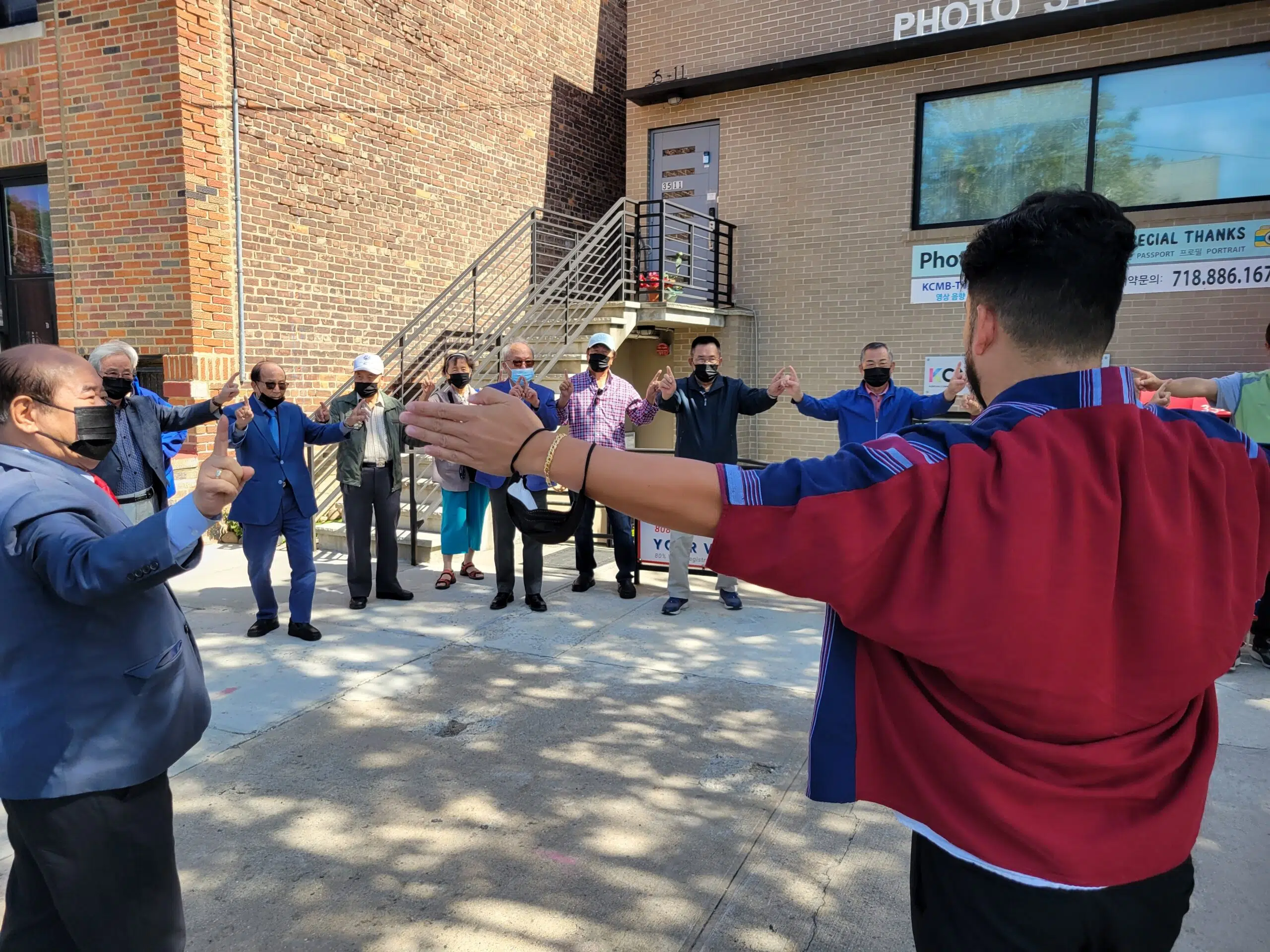We Keep Us Safe: Korean American Communities and Unarmed Protection
Story by Denise Rafaeli Cadorniga
When their safety was threatened, Korean Americans turned to Nonviolent Peaceforce for guidance. Equipped with sharpened skills and new tools for safety assessments, Korean American Civic Empowerment (KACE) members grew more comfortable turning to one another to meet their protection needs.

Anti-Asian hate surged during the pandemic —and for many, it now feels like part of everyday life. Korean Americans, especially elders, young people, and small business owners, faced a wave of fear and isolation. And they were not alone. Across Asian American communities, people were being shoved on subways, yelled at in grocery stores, and blamed for a virus they had nothing to do with. These were targeted attacks that stemmed from a nation’s history of racism and mistreatment. What began as a sharp escalation has now settled into a disturbing new normal.
Sadly, Anti-Asian hate is nothing new. Asian Americans have long been treated as outsiders in the United States. The pandemic simply resurfaced old prejudices. Racist language in media and politics—terms like “China virus” or “Kung flu”—made it easier for people to project blame onto folks that appeared to be Asian, whether they had recently immigrated, were born in the U.S., or have lived in the U.S. for generations. In times of crisis, biases tend to resurface.
From the Chinese Exclusion Act of 1882, to the incarceration of Japanese Americans during World War II, to post-9/11 profiling of South and Southeast Asians, American history is full of examples where people from Asian communities have been treated as threats instead of neighbors. This tension still shapes how people are seen and how safe they feel.
What Community-Led Safety Can Look Like
Staff at Korean American Civic Empowerment (KACE) knew it was a matter of time before an incident occurred at one of their events. For many reasons, they were not interested in hiring police officials. So, they decided to seek out support from an organization that could help their community prepare for incidents of racial targeting.
That’s when they turned to NP. Together with KACE, our staff held trainings in unarmed civilian protection, tailored to what Korean Americans were facing every day. They specifically focused on situational awareness, de-escalation, and community-led safety.
Situational awareness involves tapping into the ability to notice your surroundings and assess risk. The team recommended that folks ask themselves a few questions, like: Where are the exits? Who’s nearby? How do you recognize when something is starting to shift?
De-escalation encourages a state of calm and is paired with nonviolent strategies for defusing tension. Whether it’s with words, movement, or presence, the goal lies in preventing harm to all parties involved.
Incorporating training participants' perspective of safety is key to cultivating community-led safety. There are no one-size-fits-all solutions, each approach starts with listening.
Our team also collaborated with community partners, like the Asian American Federation and local legal advocates. These partnerships made the training sessions more responsive and grounded.
The Power of De-escalation
One day, during a voter registration drive that was open to the public, a man named Ian*, confronted a group of KACE youth. He was upset and unpredictable. Things could have escalated. KACE staff stayed calm and used the tactics they learned and practiced with NP.
The youth were redirected to a separate area, away from Ian. A distraction was created. And with steady presence, the tension was reduced. Eventually Ian left the event and no one ended up harmed.
But that’s not where the story ends.
Over the next few months, Ian returned to community events. But, instead of being fueled with hostility, he showed up with curiosity and a willingness to learn alternate ways of interacting.
Safety Is Rooted in Relationships
KACE’s decision to reach out to NP shows what can happen when a community decides to take care of itself without the involvement of authorities or formal security. Through genuine conversations and trainings, members of KACE strengthened skills that made them feel safer.

“Thank you to Nonviolent Peaceforce for staying committed to this kind of work. De-escalation takes extra effort, but it goes a long way. It can turn a confrontation into something better.” -Richard J. In, Executive Director, Korean American Civic Empowerment (KACE)
While it’s rare that KACE comes across antagonizers like Ian, it’s these examples of transformation that remind us why this work matters. It’s also a great reminder of the impact community-led safety can have for an individual and an entire community.
*Name changed for privacy
